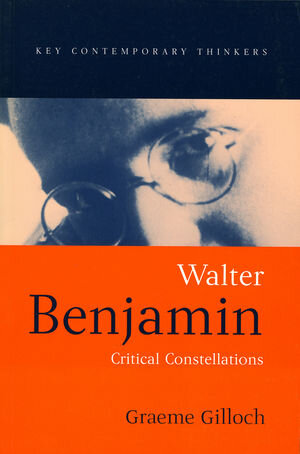
"This is an excellent introduction to Benjamin's thought, writtenwith great clarity and richly located within his biography. Gilloch's focus upon Benjamin's reconstruction of the 'afterlife'of things enables him to reveal new interconnections andinterpretive trajectories within Benjamin's themes and texts, whether they be his writings on language, literature, the city, thenew media or the Arcades Project. A most welcome addition toPolity's series on contemporary thinkers.„ David Frisby, University of Glasgow
“A fine text to accompany a firsthand reading of Benjamin, suchreading is necessary to understand the thinker critiqued here.„Library Journal
“The book highlights some major motifs of Benjamin's work andwill probably be of interest, above all, to students of media andrelated aspects of social history or theory" Brendan Moran, Philosophy in Review
The works of Walter Benjamin (1892-1940) are widely acclaimed asbeing among the most original and provocative writings oftwentieth-century critical thought, and have become requiredreading for scholars and students in a range of academicdisciplines.
This book provides a lucid introduction to Benjamin's oeuvrethrough a close and sensitive reading not only of his majorstudies, but also of some of his less familiar essays andfragments. Gilloch offers an original interpretation of, and freshinsights into, the continuities between Benjamin's always demandingand seemingly disparate texts.
Gilloch's book will be of particular interest to students andscholars in social theory, literary theory, cultural and mediastudies and urban studies who are seeking a sophisticated yetreadable overview of Benjamin's work. It will also prove rewardingreading for those already well-versed in Benjaminian thought.
This book provides a lucid introduction to Benjamin's oeuvrethrough a close and sensitive reading not only of his majorstudies, but also of some of his less familiar essays andfragments. Gilloch offers an original interpretation of, and freshinsights into, the continuities between Benjamin's always demandingand seemingly disparate texts.
Gilloch's book will be of particular interest to students andscholars in social theory, literary theory, cultural and mediastudies and urban studies who are seeking a sophisticated yetreadable overview of Benjamin's work. It will also prove rewardingreading for those already well-versed in Benjaminian thought.





